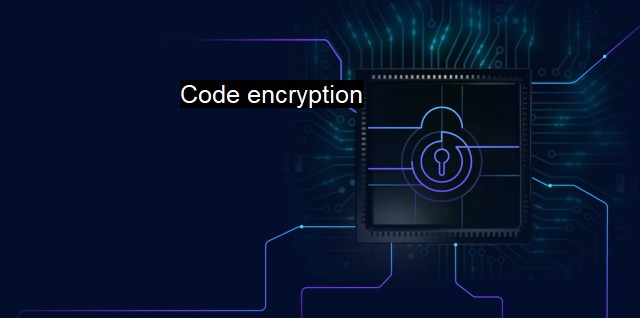What is Code encryption?
Code Encryption in the World of Cybersecurity: How it Protects Sensitive Information and Prevents Malicious Attacks
Code encryption, in the context of cybersecurity and antivirus systems, is a cornerstone that ensures the safeguarding and transference of data across different digital channels. It is a critical form of defense and protection that secures private, enterprise, and governmental interweb against substantial threats. Understanding its interpretation, applications, and associated facets offer insights on its importance in the contemporary era, where most interactions (personal or professional) are digitized.Code encryption essentially involves the transformation of plain text, easily readable information into what is known as "cipher-text," an unintelligible form of information that appears nonsensical to common observers. These transformed pieces of data only make sense to an individual or a system that possesses the decoding component, better known as the decryption key. The objective here is to establish a secure communication channel by making valuable data unrecognizable for unauthorized receivers. The overall concept revolves around symmetric or asymmetric encryption, where either one code is used for both encryption and decryption or two keys are used alternatively.
Contemporary encryption methods involve complex algorithms that apply intricate patterns to reconfigure data and render it into cipher-text. Advanced Encryption Standard (AES), a symmetric algorithm, is one of the encryption standards that is currently undefeated and widely used worldwide. The successful decryption of any AES-encrypted data without the corresponding key is reputedly impossible and can be the backbone of various highly secure systems.
One of the primary uses of code encryption resides where secure transactions and communication take place over insecure channels. Due to increasing internet connectivity and the ever-present threat of cyberattacks, securing sensitive information has become highly critical. Dealing with sensitive data, especially in industries such as banking, defense, and healthcare, their protection is of utmost priority, and code encryption serves as one major steps in ensuring this protection.
Another aspect of code encryption's reliability is evident in antivirus software. Antivirus applications utilize code encryption to secure the scanning processes for malignant software or data packets. They encrypt the code that communicates between the malware database and the software itself, ensuring that no third-party entity can gain unauthorized access, making it tougher for hackers to bypass the security walls. These applications also explore heuristic analysis of encrypted malicious executables, providing an additional layer of security against aggressive forms of malware that can encrypt their own codes to evade detection.
Code encryption also plays a prominent role in warding off ransomware attacks. Here, data held hostage is encrypted by the attacker using complex codes. With the appropriate methods in place, not only would this data be almost impossible to encrypt, but also the likelihood of an attacker finding something meaningful decreases significantly.
On a broader scale, code encryption in cybersecurity ensures the maintenance of privacy and sovereign integrity in an increasingly digitized world. With cross-border data flows booming, it is a chief defense against cyber warfare among nations. Through encrypting the database of weapons, codes of operation, strategic plans, and more, national security interests are safeguarded against prying eyes.
Code encryption provides the shield and the sword effortlessly blending defense and offense. Whether it be securing financial transactions, confidential communications, or combating large-scale cyberattacks, encrypted codes are quintessential. As we propel into the digital future, code encryption will undoubtedly become even more integral, sophisticated, and resilient, reinforcing digital security armor in different facets of the digital living sphere.

Code encryption FAQs
What is code encryption?
Code encryption is the process of converting programming code into a form that is unreadable to anyone without the proper decryption key. This technique is used in cybersecurity and antivirus software to protect sensitive code from being accessed or modified by unauthorized parties.Why is code encryption important in cybersecurity?
Code encryption is important in cybersecurity because it helps to prevent malicious attacks on computer systems. By encrypting code, attackers are unable to read or modify it, making it more difficult for them to gain access to sensitive data or exploit vulnerabilities.What are the different types of code encryption?
There are many different types of code encryption, including symmetric key encryption, asymmetric key encryption, and hash functions. Each of these methods uses a different approach to encrypting data and has its own strengths and weaknesses.Can code encryption be cracked?
While code encryption can make it difficult for attackers to gain access to sensitive data, it can still be cracked if the encryption algorithm is weak or if the key is compromised. In some cases, attackers may use brute force or other techniques to try to crack the encryption. Therefore, it is important to use strong encryption algorithms and to keep encryption keys secure.| | A | | | B | | | C | | | D | | | E | | | F | | | G | | | H | | | I | | | J | | | K | | | L | | | M | |
| | N | | | O | | | P | | | Q | | | R | | | S | | | T | | | U | | | V | | | W | | | X | | | Y | | | Z | |
| | 1 | | | 2 | | | 3 | | | 4 | | | 7 | | | 8 | | |||||||